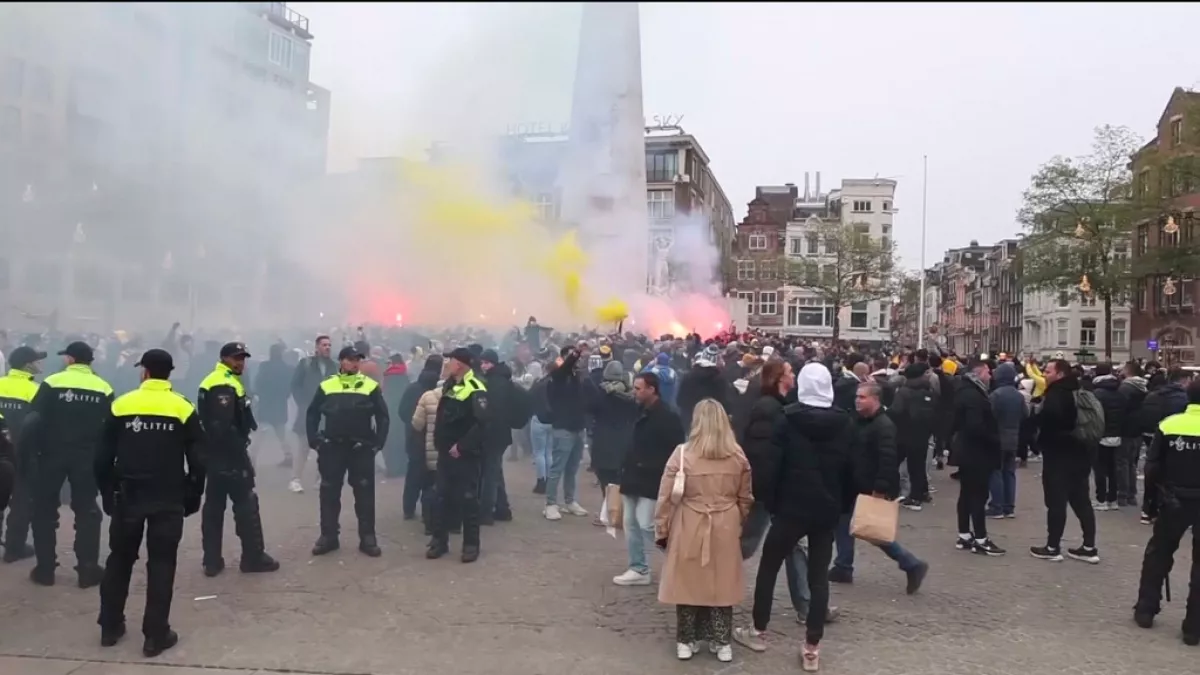A protest in The Hague against immigration policies escalated dramatically into violence this past weekend. What began as a demonstration for stricter asylum rules devolved into clashes between protesters and police, property destruction, and widespread unrest — in the tense lead-up to the Netherlands’ general election.
What Happened
- Hundreds of people gathered to protest immigration and call for tougher asylum laws.
- Some protesters, many dressed in black and waving flags tied to far-right groups, threw stones and bottles at police forces.
- A police vehicle was set on fire during the chaos.
- The headquarters of the centrist political party D66 was vandalised, with windows smashed.
- Law enforcement responded with water cannons and tear gas. A smaller group tried to approach the fenced-off parliamentary complex but were kept at bay.
Key Players & Reactions
- The demonstration was organised by a right-wing activist known publicly as “Els Rechts.” She later expressed regret at the turn of events, saying she had assumed the gathering would be peaceful.
- Rob Jetten, leader of D66, condemned the attacks on his party’s premises, warning that violent intimidation won’t shake their resolve.
- The caretaker Prime Minister, Dick Schoof, called the incidents “shocking” and “completely unacceptable,” emphasising that there is always room for protest — but never for violence.
- Even Geert Wilders, outspoken hard-right politician whose party withdrew from the ruling coalition earlier this year over migration disputes, criticised the violence, calling the perpetrators “unacceptable.”
Why This Matters Now
The protest and ensuing clash come at a critical moment: the Netherlands is heading to the polls later this month in a snap election. The political climate is already charged after the collapse of the ruling coalition, largely triggered by disagreements over migration and asylum policy.
Public concern over immigration has become a major campaign issue. Parties on all sides are under pressure to clearly define their stance on migration, security, and asylum processing. This incident in The Hague is likely to heighten those debates and could shift voter perceptions — especially among citizens who prioritize law and order and social stability.
Implications & Aftershocks
- Political Fallout: The violence may harm parties perceived as unable to ensure public safety, potentially boosting more hard-line or populist groups.
- Election Atmosphere: As campaigns intensify, the risk of more large-scale protests and clashes may rise, particularly around flashpoints like migration.
- Social Tensions: The event exposes growing frustration among parts of the population about immigration policies, which could amplify societal divisions.
- Law Enforcement Scrutiny: How police respond, and whether they are seen as fair or heavy-handed, could influence public trust going into the election.
The Netherlands now faces not just a political decision at the ballot box, but a test of how protests and dissent are handled in fraught times. With voters watching closely, the fallout from The Hague may well shape more than just policy — it may shape the tone of Dutch democracy itself.
















Leave a Reply